Playlists
by Claire Dederer, May 15, 2017 12:38 PM
Photo credit: Jenny Jimenez
This book is about going a little nuts at midlife, and rediscovering the girl I used to be. At 45 years old, I was a happily married mom of two when I suddenly found myself both extravagantly sad and sexually kind of woken up — just as I’d been as an adolescent. I had worked hard to become a respectable worker and mom, but that terrible girl just came roaring back out of nowhere. The book toggles between my slutty, troublesome teenage self and my grown-up self, who’s overwhelmed with an unexpected, tidal lust and melancholy...
|
Guests
by Claire Dederer, January 7, 2011 12:34 PM
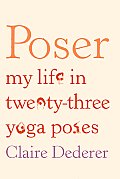 Just to make things super-meta-confusing, today I'm including in my post a letter from my husband, Bruce Barcott, who is in Portland right now working on an article about a runner who's currently training at Nike. He spied on my new book at Powell's. This is what writers do: we spy on each other's books, check placement, surreptitiously move them to a better location. If you are a writer and you are not doing these things for your friends or for writers you admire, you should start immediately. It means you're a nice person. The novelist Jonathan Evison says every day he does one thing for another writer before he does something for himself. And everyone, I mean everyone, loves that guy. Anyhow, Bruce writes from Portland: Yesterday: Toggling between two extremes of Portland, the clean superfit world of the Nike World Headquarters campus (like a really fancy college campus, for athletes and shoe designers), and the "Dream of the 90s" funkiness of Powell's and the Pearl. One block from Powell's I swear I saw a couple that just stepped out of the Fred Armisen video, shaved head and facial hair and chunky glasses and Beat Chick top-n-skirt and all. 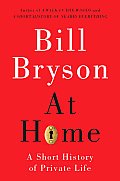 Your book is the front window next to Steve Martin's novel (heartily endorsed by 92nd St Y!) and Bill Bryson's latest "Let Me Tell You About the World Because I'm a Funny Funny Man" book; all are part of some Powell's 30% off Great New Books We Love or some such program. So it's there in the window, and on the entry room display shelf, and again near the back door cash registers. Usually when you see your friends' books (or, ahem, your own), they're small and spine-out and you try to do some good in the world by turning them face out and thereby defeating the entire commercial system that has arisen around endcaps and coop and such. So I did a little work there. Then I went and found one of Emily White's books and gave it pride of placement as well. I couldn't bear to even look at my own forgotten darling. (I think it's in "Pets.") Your book is the front window next to Steve Martin's novel (heartily endorsed by 92nd St Y!) and Bill Bryson's latest "Let Me Tell You About the World Because I'm a Funny Funny Man" book; all are part of some Powell's 30% off Great New Books We Love or some such program. So it's there in the window, and on the entry room display shelf, and again near the back door cash registers. Usually when you see your friends' books (or, ahem, your own), they're small and spine-out and you try to do some good in the world by turning them face out and thereby defeating the entire commercial system that has arisen around endcaps and coop and such. So I did a little work there. Then I went and found one of Emily White's books and gave it pride of placement as well. I couldn't bear to even look at my own forgotten darling. (I think it's in "Pets.")
Anyway. It's still by far the best bookstore in the entire world. Somehow it manages to house all those millions of books and yet not give a writer extreme depression at being but one of a million brighter stars. It's more like a library than a bookstore, somehow, probably because so many people actually are using it as a library, sprawled or squatting in the fiction aisles brazenly reading reading reading. And there are so many people and the place is so simultaneously laid back and buzzing with activity that it's like the perfect coffeehouse where you buy a two-buck cup and find a cubby in the back and stay there all day and nobody gives a shit. Love, Bruce So that's the word from Portland. I hope he remembers to look for old George Booth collections in the comix section. That's always my first stop. Then I head to fiction, where I like to turn the Laurie Colwin novels face
|
Guests
by Claire Dederer, January 6, 2011 2:20 PM
Yoga books, in general, are intolerable.  It's January, the month when yoga classes fill up with people trying something new. Often they're nervous. They're not sure exactly what they're doing. And they're not alone. We, the people who do yoga, are practicing an incredibly esoteric spiritual system, and often we're practicing it at, of all places, the gym. Clearly we could use a little background information. We need yoga books. It's January, the month when yoga classes fill up with people trying something new. Often they're nervous. They're not sure exactly what they're doing. And they're not alone. We, the people who do yoga, are practicing an incredibly esoteric spiritual system, and often we're practicing it at, of all places, the gym. Clearly we could use a little background information. We need yoga books.
Here's the problem: Most yoga books stink. They are chock-full of paths and intentions and destinies. They are crammed with horrible words like holistic and mantra. You can practically feel their authors glowing with smugness. I once read a yoga book so replete with self-congratulation and platitudes that it made me quit yoga for a month. I refused to be party to a culture that could give rise to such a document. There are a few tolerable yoga books out there in the lotus-festooned rubble. Awakening the Spine, by a wiry Italian crone named Vanda Scaravelli, is an eccentric little book beloved by yoga teachers. Scaravelli is a bossy grandma, a circus freak (you get to see amazing photos of her beautiful, weathered body in astounding poses), and a game, able spiritual teacher all at once. 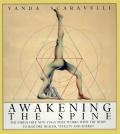 Yoga and the Quest for the True Self, by Stephen Cope, teeters dangerously close to the kind of new agey babble that kills most yoga books. But Cope has worked as a psychotherapist for most of his life, and he does a brilliant job of aligning the ancient practices of yoga with Western ideas about psychology. This book tackles the terms of yoga philosophy and makes you feel they might actually relate to your life. And when the term is something like the "bliss sheath," that's quite an achievement. Yoga and the Quest for the True Self, by Stephen Cope, teeters dangerously close to the kind of new agey babble that kills most yoga books. But Cope has worked as a psychotherapist for most of his life, and he does a brilliant job of aligning the ancient practices of yoga with Western ideas about psychology. This book tackles the terms of yoga philosophy and makes you feel they might actually relate to your life. And when the term is something like the "bliss sheath," that's quite an achievement.
The Hatha Yoga Pradipika is a 14th century text that is much easier to read than the more famous Yoga Sutras. The Pradipika plunges the reader into the rather exciting and sometimes frightening world of nasal cleansing, ritual enemas, and extreme chanting. You have to love a book that gives these instructions: "The Yogi should practice Hatha Yoga in a small room, situated in a solitary place, being 4 cubits square, and free from stones, fire, water, disturbances of all kinds, and in a country where justice is properly administered, where good people live, and food can be obtained easily and plentifully." Reading the Pradipika is like visiting a foreign country — a place where the most basic social mores are unfathomable to us. This book is a frank corrective to the notion that we, in our yoga studios or our gym yoga classes, understand very much at all about yoga. And humility is always the best accessory to bring to a yoga class
|
Guests
by Claire Dederer, January 5, 2011 10:20 AM
 I once heard someone described as a "compensating narcissist." The speaker meant that the person in question was a total narcissist, but kept trying to make up for it by showing an interest in others. So it is with memoirs. I think they work best by compensating a bit. By being ostensibly about something outside of the writer. The memoir, I think, functions best in disguise. Here are some of my favorite memoirs, all of which work on this model: - Fever Pitch by Nick Hornby. Ostensibly about soccer but really about Nick Hornby.
- The Importance of Music to Girls by Lavinia Greenlaw. Ostensibly about music but really about Lavinia Greenlaw.
- About Alice by Calvin Trillin. A book by a man about his wife which turns out really to be about the man.
But my favorite of this genre is Out of Sheer Rage by Geoff Dyer. Sometimes I suspect this might be the greatest book ever written. I mean, obviously Anna Karenina is better. But there's something about the sheer balls of this book that thrills and inspires me anew every time I read it. Maybe it is, instead, the most helpful book ever written. At least for me. I can't think of another book that gets me quite this worked up about the possibilities of writing. Out of Sheer Rage is a memoir/critical study/travelogue about D.H. Lawrence. The book opens with Dyer attempting to write a scholarly Lawrence book, and at the same time thinking maybe he should write a novel. He works simultaneously on the two projects, distracted by each, toggling back and forth between two empty computer files. 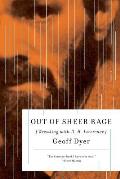 Of course, the very notion of the Lawrence study is a MacGuffin. Dyer never really meant to write it, as he admits here. Fast forward to 1:49 and hear his confession. Of course, the very notion of the Lawrence study is a MacGuffin. Dyer never really meant to write it, as he admits here. Fast forward to 1:49 and hear his confession.
In pursuit of this nonexistent but compelling goal, Out of Sheer Rage becomes a hilarious meditation on the pointlessness of literary genre. It's a biography of Lawrence that tells you more than you ever wanted to know about Dyer. (Also, any book that refers to Julia Kristeva as "that old trout" has something going for it.) Given the fact that I myself have written a pretty irreverent book about yoga, you would think that my favorite Dyer book might be Yoga for People Who Can't Be Bothered to Do It. As far as I can tell, the project of that book involves Dyer proving that he can go to as many raves as he likes, in as many countries as he likes, with as many soulfully beautiful girls as he likes, even though he is unequivocally too old. Probably they are not even called raves anymore. How would I know what they're called? Let us just say "outdoor parties." Anyway, as much as I wanted to love it, its essential fatuousness eventually wore me out. And there's a revelatory essay set at Burning Man, to which I say "Pah." Out of Sheer Rage, on the other hand, is a gigantic hall pass. It freed me in a way I never expected. (Is anyone freed in the way they expected? Probably not.) Write about yourself as much as you like. Just make sure you behave as though you're writing about something else. Eventually I came to write a book about something else (yoga) that was really a book about me. Compensating narcissist that I
|
Guests
by Claire Dederer, January 4, 2011 10:04 AM
 So, I got most of my Portland issues out of my system yesterday. Today, by God, the blogging begins in earnest! I'm here to talk about, among other things, The Memoir. With capital letters, just so. My memoir, Poser: My Life in 23 Yoga Poses, came out in December. I will be reading from it at Powell's on January 28. More specifically, I'm interested in the memoir of the ordinary person. I wrote one of those. It would be hard to imagine a more ordinary ordinary person than myself. (Though one of my feet is notably bigger than the other.) So I have spent a lot of time thinking about this genre. Why do we read such books? For the same reason we read novels, or cookbooks, or ethnographies: Because we are nosy about how other people live. Memoirs are excellent delivery vehicles for news of everyday life. 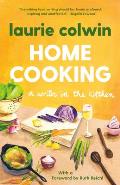 We want to know what other people eat for dinner (pace Laurie Colwin's Home Cooking), and how exactly they fight with their spouses (Manhattan, When I Was Young by Mary Cantwell). We are interested to learn that their socks fall down inside their shoes (How to Sleep Alone in a King-Size Bed by Theo Pauline Nestor), and that they have ridiculous work habits (Geoff Dyer's Out of Sheer Rage). It's a strange thing, but the homelier the detail, the happier the reader is. The memoir is the hobbit of the literary world; its lows are low, and so are its highs. The mundane becomes fascinating, and the reader becomes a voyeur of the ordinary. There's a deliciousness in that. We want to know what other people eat for dinner (pace Laurie Colwin's Home Cooking), and how exactly they fight with their spouses (Manhattan, When I Was Young by Mary Cantwell). We are interested to learn that their socks fall down inside their shoes (How to Sleep Alone in a King-Size Bed by Theo Pauline Nestor), and that they have ridiculous work habits (Geoff Dyer's Out of Sheer Rage). It's a strange thing, but the homelier the detail, the happier the reader is. The memoir is the hobbit of the literary world; its lows are low, and so are its highs. The mundane becomes fascinating, and the reader becomes a voyeur of the ordinary. There's a deliciousness in that. We are nosy, but at the same time, we don't actually want to find out that people are different from us. We want to find out the cosy truth that they are similar to us. We read such books — books that reflect our own lives back to us — with an access of relief. An exhale. I'm not going it alone. Not
|
Guests
by Claire Dederer, January 3, 2011 12:01 PM
 Good morning, Portland! Up here in Seattle, we... well, we hate you. We hate you for being cooler than us, and for having better restaurants. We hate you because, while we were getting all overexcited during the tech boom and building terrible, terrible buildings, you were passing ordinances that basically turned your city into Sweden. Convenient transit. Nice-looking young folk in dun-colored clothing. Bikes everywhere. You probably get paid to have babies in Portland. Do you? Of course you do. And I hate you for it. I when I say "hate," I guess I mean "love." Sometimes that happens. Here in Seattle, we believed in capitalism for years and years, even though we pretended it wasn't capitalism. We pretended it was a revolution. The whole city was obsessed with making money. Meanwhile, you guys were creating a tiny pinko dream state. Sigh. As far as I can tell, nobody in Portland actually goes to work. They browse record bins. They mulch. And they hang around at Powell's. That's why I love to visit Portland. I can immerse myself in your strange atmosphere of industrious leisure. Here's what I would do if I was spending the day in Portland: Breakfast at the Daily Cafe. Powell's. Lunch at the Daily Cafe. Powell's. Then I would skulk into that Anthropologie across the street and spend some time mauling the sale racks. Then a lamb sandwich at Brasserie Montmartre. (Despite the remodel.) And then, of course, lots and lots of video poker. It's the opiate of the masses, I hear. But I am in Seattle (or near Seattle, on what a friend refers to as "your precious little island"). So I will instead spend today as I spend every day: trying to figure out how to pay my
|